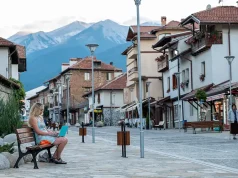
While it’s supposed to be exactly the opposite, there are so many opportunities for stress when you travel.
For example, airport lines and rules are notoriously tedious. Even when you drive for your trip, you may face traffic or deal with dangerous and rageful drivers.
There’s the potential for lost luggage, bad weather, or disappointing accommodations.
Now, as many people are gearing up for their first trips following the pandemic, there’s even more stress.
For example, you have to find out the mask and vaccine requirements for your destination, and some places aren’t open at all to travelers right now, and others are completely wide open. There’s also the potential for things to change from day-to-day as far as COVID guidelines and regulations.
Even with all the potential stress, if you don’t enjoy your vacation, it’s not worth it.
There are some variables you might not have control over, but what you can do is focus on the ones you can control.
With that in mind, the following are some tips to reduce your stress level when you travel.
Pay for As Much as You Can Ahead of Time
Traveling can be expensive, and if you’ve already spent money when planning a trip, and then you go and spend thousands more, you might not be able to enjoy yourself.
Try to plan ahead and pay for as much as you’re able to before you leave for your trip.
For example, if you’re going somewhere you can buy a meal plan or choose an all-inclusive option, do it.
If you’re going to do activities when you’re at your destination, see if you can book and pay for those ahead of time as well.
The more you’ve paid for before you leave home, the more you’ll be able to relax.
For those things you can’t or don’t want to pay for ahead of time, create a realistic budget based on your finances. Then you’ll know what you can spend while you’re gone, and as long as you stay within that, you won’t have to feel guilt.
Luckily, because of COVID, most travel operators have become increasingly flexible in their refund process, too, although you should read any fine print before you pay for something upfront.
While you’re paying ahead of time, plan ahead of time too. For example, arrange your transportation from the airport well before your trip, so you aren’t left waiting in a long cab line when you arrive.
Have a General Itinerary
There are some trips where maybe you don’t need an itinerary at all, and that’s fine. For example, maybe you’re heading to a particular spot in the Bahamas you’ve been going to for years.
You probably don’t need to schedule or plan your trip in detail.
If you’re going somewhere with a lot of sightseeing or somewhere you’ve never been, however, having an itinerary can help you feel less stressed.
Make dining reservations ahead of time, too, because there’s nothing worse than being faced with a lot of dining choices and not being able to pick the best one or having to wait in a big line before every meal.
Adjust Your Expectations
We often go into travel experiences with expectations that aren’t realistic.
For example, if you’re facing problems at home, a vacation isn’t going to solve those.
Go into vacation managing your expectations. It’s a good way to change up your routine and, as a result, your perspective. That doesn’t mean that traveling is going to change your life, but it can still be something that’s worthwhile and enjoyable for you.
Be Careful About Who You Travel With
Sometimes, it can seem like a great idea to travel with certain extended family members, but then once you’re actually on your trip, you might rethink that.
You want to travel with people who are like-minded.
You don’t have to do everything together, but if some of you love expensive dinners and the others want to cook at your rental, for example, it can create friction.
Before you go on a trip with people outside of your immediate family, you might want to have a discussion about your travel preferences and what you’d like to get out of the trip.
Be Early
If you have a fear of being too early to the airport, it’s time to get over that.
Being early is one of the best ways to reduce your stress throughout your entire trip.
When you’re rushing, it’s always going to create stress.
Along with being early to the airport, if you have reservations for restaurants or activities, try your best to be early to those too.
Pack Smart
So many of us have the problem of overpacking when we travel. You want to be prepared for everything, but in doing that, you bring way more than you need. That creates stress because you have to lug a ton of luggage around, pay more on flights, fight for overhead bin space, and pack your suitcases into cabs and rental cars.
Start thinking about what you should pack well in advance of your trip so that you aren’t doing it on the fly.
Make a list based on your itinerary, and if you can, try to stay somewhere that has laundry.
Spend a few days going over what you typically use in a day, from medicines and supplements to clothing and shoes, and evaluate that as you’re making a packing list.
Finally, just have a good attitude. Even if things go wrong, it’s important to understand that nothing is perfect.
If you have a bad attitude or let small interruptions ruin your trip, then you’re also going to ruin it for the people around you.
Look at travel as fun and exciting, and when you deal with things that might be stressful, overlook them.
When we look back on the memories we create when traveling, we rarely focus on the bad ones.





